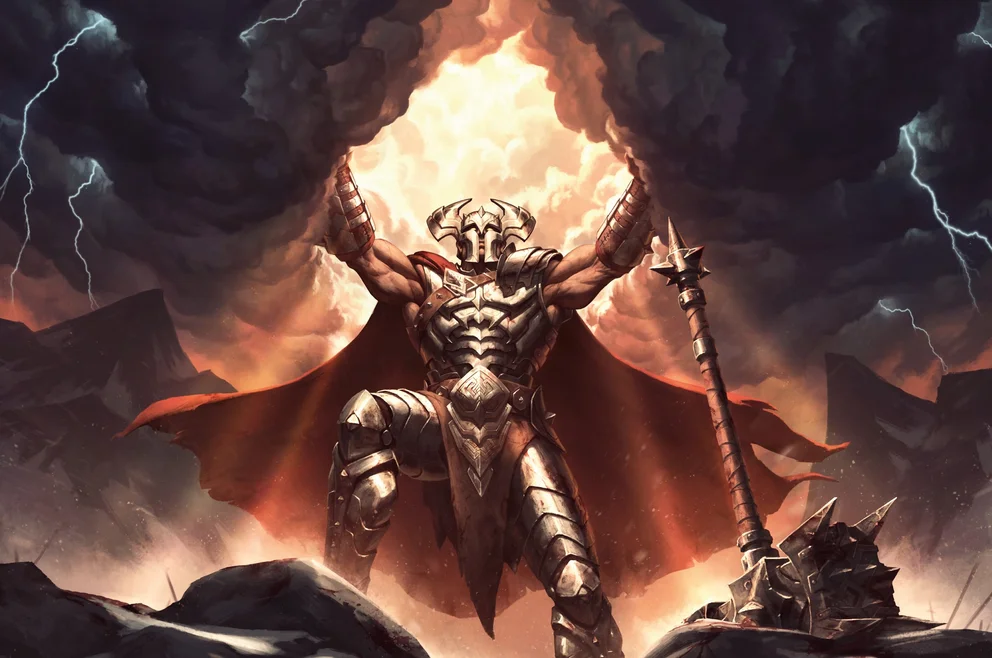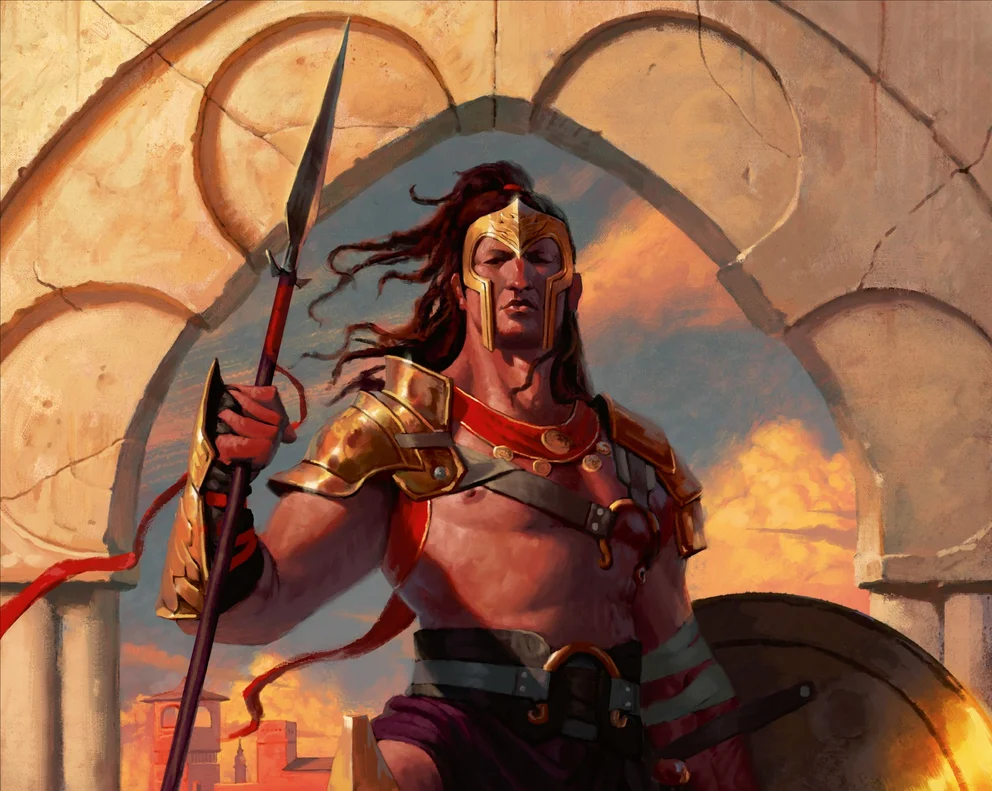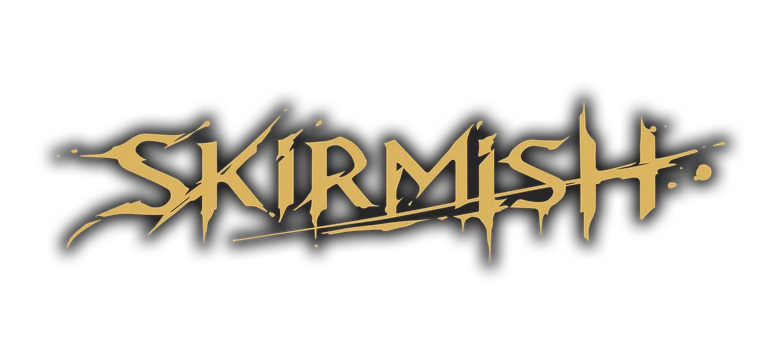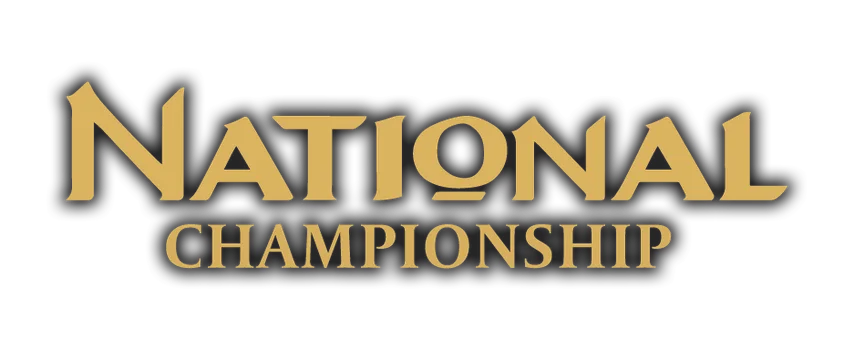Pablo Pintor is widely known as one of the greatest Flesh and Blood players of all time. The winner of Pro Tour: New Jersey and Calling: Antwerp, as well as several other premier event tops, Pablo brings his best to the table every single time. His testing team, the Sunflower Samurai, operate in Spain, and are always well-equipped for any tournament.
Competition is one of the most attractive things about trading card games. Glory, fame, money - all of these make players work hard and practise regularly, building teams to not only have fun, but to help each other develop their skills. It's a fundamental part of the hobby and Legend Story Studios has always taken great care to ensure the competitive scene is the best it can be. This was one of the main things that drew me into the game. Yes, competition can be fierce, but the atmosphere is great, players are extremely respectful, and everyone wants to have a good time.
Okay, have I convinced you to compete? Great! But...where should you start? How do you prepare for these kinds of events? I aim to share my experience preparing for premier Flesh and Blood tournaments, with advice that will help smooth out the process. National Championships draw near, one of the most exciting times of the year for players, so I will try to help you do the best you can!

Step 1 - Analyse the metagame
The first thing to do is study the metagame and try to predict what it will be like during the tournament we are preparing for. Luckily for us, it is pretty easy finding information about past events on fabtcg.com, which gives us a general image of the power structure currently in the game. For example, if Ninja and Runeblade have been getting really good results, you can bet on them continuing to do so, and you can craft your deck to fight an environment shaped by those decks. Maybe you could choose a deck that isn't as generally powerful as the top decks, but performs extremely well against them. Or you can tweak one of those popular decks so it works better against bad matchups...or in mirror matches. Possibilities are endless and the challenge of facing a new tournament is always exciting!
Look at raw data, discuss it, try to think how the decks will develop, don't try to jump straight into testing because properly assessing the state of the game will save you a lot of time!
Once you have decided which decks you believe will be the most relevant for your event, you will have to practise with and against them, but never forget about the other heroes. Flesh and Blood is a really diverse game, with specialist players in each and every class, who will harshly punish those who don’t know how their deck works.
Step 2 - Play, play, play
The most obvious part of the whole process is playing games. I can't stress enough how important it is to keep track of each game's results, especially if you can add some brief notes about it. It really helps to see how matchups have been developing across several games. There’s no cutting corners, you will have to play a lot of games to develop skills and get acquainted with the different decks. To optimise time, I highly recommend doing some short analysis with your opponent...Has there been a high roll? Did you have the right approach for this game? Did the card that you added specifically for this matchup pay off? Going over a few key questions after the game and exchanging ideas makes the whole process much faster and enjoyable.
If you have enough time, playing each and every deck you consider relevant for the metagame would be the best approach, it also allows you to quickly switch between classes. Obviously not everyone has that amount of time, so choosing just a few and refining them by playing against every other deck is another great option, it just sacrifices some flexibility.
You shouldn't give up quickly during games, I know that a quick loss in advantage can leave bad taste in your mouth and make you want to skip to the next game, but you will see that, as testing progresses, you will have plenty of room to manoeuvre, adapting your deck and trying new approaches (while testing with my team we have seen some matchups which were really favoured for one side be completely flipped).
Step 3 - Learn the rulings
It is necessary that you know exactly how each and every card in your deck works, and if possible, the other decks you deemed relevant in the metagame. If you are able to understand how these interactions work, you will avoid a lot of confusion or potential misunderstandings during games, and you will know if your opponent has made a mistake. Judges are your friends and they will be delighted to help you whenever you need it, but why not be better prepared and make their job a little bit easier? Try to play as if you were in a real tournament even while practising, paying attention to triggers and phases, so when the actual tournament comes it feels like second nature to you.
Step 4 - Lock in a hero
The tournament date approaches and you finally need to settle on one deck. Maybe during your testing you already found the deck that you want to play, and you just need to choose your last inventory options. Maybe you are still struggling to choose between a few decks. What matters most at this point is being able to look at all the data you have from your testing (not just the last games where you have been beaten to a pulp), taking it in, adding your own gut feeling of how the tournament will be, and finishing your deck.
Once you have made these decisions, anxiety tends to rear its ugly head, but you should just try to ignore it and relax. Last minute changes are sometimes really good, sometimes really bad, but most of the time those last two cards in your inventory won’t really matter, so don't lose sleep over every detail. Discussing any potential changes with your group always helps ease the tension.

I have seen a lot of people trying to “win” testing time by surrendering when they find themselves in a hard spot or when they think they have lost, but playing every game to the bitter end has value and shouldn't be overlooked. Huge comebacks are one of Flesh and Blood’s trademarks, and much more frequent than most people think. Navigating endgames is another skill that should be developed, either as the player pressuring, or as the player holding on for dear life, trying to find a window to steal back tempo. There are always mistakes to avoid and tricks to learn during those game states and the best way to learn is by playing.
The last thing I would like to point out is that, in order to have a healthy approach to competition, it is really important to have clear and realistic expectations before each event. Even if we have prepared really well, a lot of other players will have done so too, and at the end of the day, only 8 of you can make the top cut. Correct preparation is important, as is making the right metagame calls, but in order to do well at these tournaments, you will also need a bit of luck. Luck in your pairings, luck during your games, luck in tie breakers...Coming to terms with the fact that it is really difficult to Top 8 premier events is necessary to not feel burned out at the end. As we have said, all the testing process up till this point should have been both challenging and fun, and the tournament day is the crystallisation of all your efforts, a day devoted to competition which will test us, a day to meet new friends, a day to celebrate and remember.
If you’re not enjoying the testing process then there’s absolutely no harm in taking a break. It makes no sense to practise over and over if we are forcing ourselves to do so. Most of the time it's just better to take a step back for a few hours or days, slow down and relax, organise our thoughts, then come back stronger than ever! Each of us has a different way of enjoying Flesh and Blood, so making sure everyone’s having fun with practise sessions should be a top priority. Testing for a tournament is laborious and complex, and results are always uncertain, but it should never stop being fun!
I hope that you have an amazing experience in your future tournaments, whether that’s your local Skirmish or your National Championship! I would also like to shamelessly use this opportunity to try to convince you to come over to Spain to participate in World Championship: Barcelona - you will have the friendliest hosts, delicious food, and really nice weather.
See you soon on the game tables!

